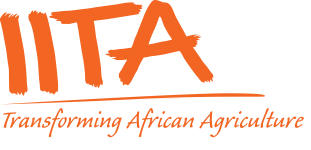Entrepreneurship has become a force for development, generating jobs and wealth, financing and accelerating Africa’s structural transformation. Across the continent, entrepreneurs are starting businesses of all types and sizes. According to Gallup’s 2013 survey, more than one in three respondents (35%) from Sub-Saharan Africa planned to start their own business, marking the highest entrepreneurial initiative among all world regions (Gallup, 2013). Small and Medium-sized Enterprises (SMEs), however, are the dominant form of entrepreneurial activity in the region and constitute around 90% of business operations and create over 50% of employment and GDP. Indeed, entrepreneurial activity played an important role in the period of sustained and relatively high economic growth that Sub-Saharan Africa has experienced over the last decade. There is consensus among African leaders and development partners that the transformation of the agricultural sector is of critical importance, since it will continue to be the main sector to stimulate economic growth. A strong involvement of Africa’s youth in rural development, agriculture and natural resources management will boost economic growth in the continent. As such, at the Agribusiness Forum convened by the African Union in 2014, stakeholders from the private sector, governments, development organizations, and donors, as well as representatives of women and youth, met to agree on practical strategies for ensuring inclusiveness of youth in the agribusiness landscape. The recommendations of the Forum were further reflected in the subsequent African Union Heads of State Summit, who re-affirmed their commitment to the Comprehensive African Agriculture Development Programme (CAADP), and committed to creating at least 30% more youth employment opportunities in agricultural value chains. However, African governments, youth and development agencies face a challenge, specifically, the lack of research and evidence based information concerning the nature of the problem and potential solutions, to guide both policy development and programme implementation. While youth growth-oriented agribusiness and rural economic entrepreneurs have received significant attention, the sector is still learning what works best in terms of policies, partnerships and programs to support young growth-oriented entrepreneurs. There is a lack of empirical evidence about the role of young adults in entrepreneurship and rural non-farm entrepreneurship (DIAL, 2007; Namatovu et al., 2012). More generally this reflects that “there is little youth-specific research on self-employment” in Africa (Pieters, 2013). An insight into the social sciences’ global evolution over the last decades obtained from the number of research articles written by authors from each region during the two decades 1988-1997 and 1998-2007, confirms this gap. Less than 2% of the social sciences articles (less than 4,000 articles per decade) are produced by Latin America and Africa researchers. The knowledge gap in understanding factors influencing youth engagement in the rural farm and non-farm economy in Africa hinder the formulation of appropriate policies and investment plans. The main assumption is that investments targeting youth self-employment in Africa can have much greater impact by ensuring data and information, evidence, experience and lessons learned are used to influence programmatic, policy and decision-making. The Project seeks to enhance capacity to undertake and use research and, to that end, will engage with key user stakeholders. This will also ensure the sustainability of investments.


















